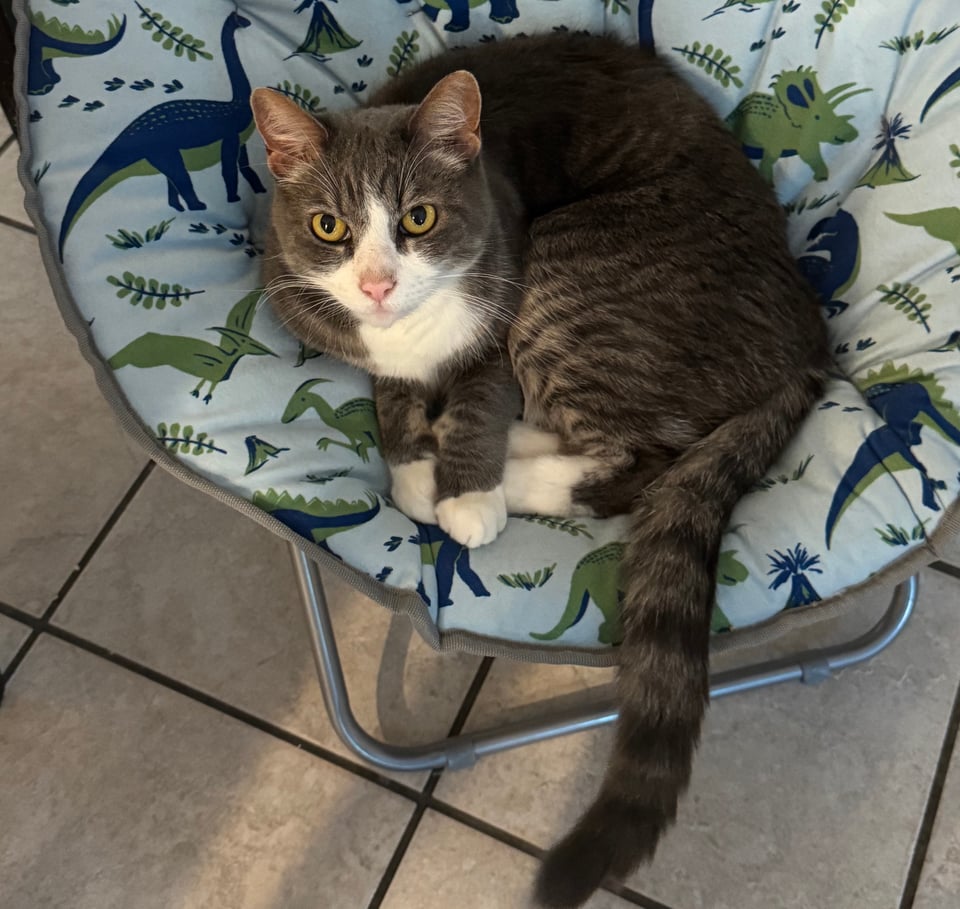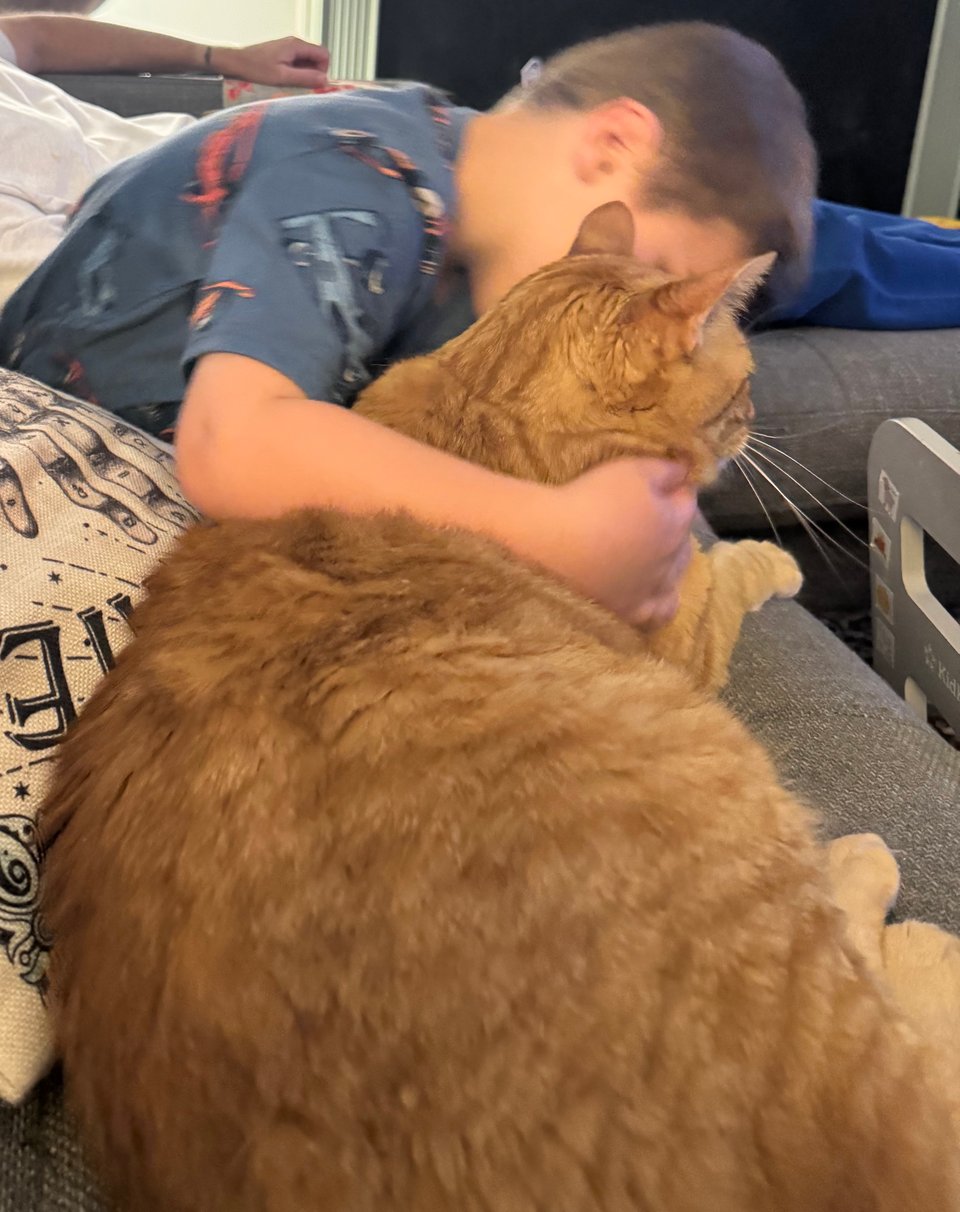everything is 💩
On unbearable lightness, etc.
There’s no reason for me to be on Facebook, but I’m still there. It increasingly has that ghost town feel - like accidentally stumbling on a myspace page, or a website from the early internet, an artifact of an earlier time. In an effort to try to keep eyeballs engaged, and with a lack of regular posting from my “friends,” it shows me various groups and pages.
There is a new thing I keep seeing over and over: an engaging lead sentence - “My husband told me before he passed away that…” and I’m no better than anyone else, I want to know what he told you, so I read more. A long heartfelt post ensues, with a picture, but there’s something uncanny there - deep in the story is a reference to a website, and the photo, if I really look closely, isn’t there something wrong with it? And that’s when I realize it’s all fake. The husband, the photo, the story. It’s slop designed to draw me to some online store.
Humans are great, and they’re always coming up with new ways to amuse and entertain themselves. Every new trend - the day in the life video, the unhinged linkedin post, the long heartfelt story with a picture - follows a similar path. First as real and authentic, then as slop. In The Unbearable Lightness of Being, Kundera returns repeatedly to kitsch, which he defines as “shit,” meaning the aesthetic slop of totalitarian regimes and bourgeois nonsense. Generally in the popular understanding people think of kitsch as tackiness, but Kundera cuts through all that: shit.
The Oval Office covered in gold leaf detail? Shit. The Department of Homeland Security relentlessly tweeting Ghibli style AI pictures of immigrants being deported? Shit. The aesthetics of our current moment are especially nightmarish. Everything is a scam, and nothing works.
Lately when I’ve sat down to write this, I didn’t really like anything I produce. At first I thought, that’s okay. Send it anyway. But in a universe of meaningless shit, in the endless river of slop, it’s hard to push out stuff you don’t like or believe in, especially to people who opted in to your musings. But it’s okay. I’ve never really believed in “writer’s block,” at least not in the way people define it. It’s more like how you get out of shape, and then the work of getting back into shape takes time. Your fingers on the keyboard, or your handwriting on the page. It starts slowly, then before you know it you’ve written a mile without losing your breath, except you’ve mixed your metaphors again, haven’t you?
There’s an internet truism that I think of a lot these days: Everything happens so much. (Was it so long ago that the internet was charmed by a seemingly bot-generated twitter account called Horse_ebooks that shared profundities?) The news is relentless. I scroll through tiktok and suddenly there’s a sped up video of a local immigrant defense network following ICE agents through the streets I drive every day. The president says he’s going to do something that is actually illegal, and the Supreme Court says “Great,” in an unsigned order. An American who moved his family to Russia so they wouldn’t have to learn about “woke culture” is now on the front lines of the Ukraine war. Gazans are starving; the New York Times debates the definition of genocide. The surreal: the kitsch.
Kundera did not want to be a “political writer.” Though some of his most biting works are about the ridiculousness of authoritarianism, he tried, multiple times, to fit in with the ruling communist party of Czechoslovakia. He defended communism after the Prague Spring, believing it could be reformed, before eventually moving to France when his works were banned and his citizenship revoked. There is the sense, reading about his life, that events coalesced around him against his will, much as things sort of happen to the main character of Tomas in Unbearable Lightness. Tomas is a libertine, but his past denunciations of communism lead him to become an unwilling dissident figure as political events overtake him. For some of his life, Kundera wanted to write about people and philosophy, and believed Czech communism could work. The times he lived in dictated that he was writing about people and authoritarianism through a philosophical lens, and was the target of both communist authorities and Czech dissidents.
He went so far as to begin writing in French, and waffled on having many of his novels published and/or translated into Czech. (This is how Unbearable Lightness is both a perfectly Czech book and also was not officially published there until 2006.) We can probably draw some parallels with the other famous Czech writer, Kafka, an ethnically German Jew who wrote in German and felt a strange tension with the culture and language of his home region. What is it to be exiled from the country of your birth by circumstance? What is it to be exiled from your language, your home, by choice and circumstance?
It’s not that the purpose of this newsletter is literary analysis, and it’s not that I’m a noted scholar on any of these topics (any errors of fact are my own). It’s that as everything continues to happen so much, I find a lot of fascination from looking at the past, and how people worked, lived, and made art. Events overtake us. We find ourselves wondering if we are in a loop, reliving the same mistakes of the past, or enjoying the promise that this life is the only one we have. We do our best, it’s all we can do.

Recommendations for the moment
This article, Why Kundera Never Went Home, was invaluable as I tried to remember what I knew about Milan Kundera when I first read his work twenty (!!!???) years ago.
As I was editing this after too many weeks of plugging away at it, it was announced that Ozzy Osbourne died. We watched the Back to the Beginning tribute concert a few weeks ago and it was a powerful last hurrah for a legend. May we all get to do the things we love right before our time is up.
Speaking of Ozzy, this version of Changes by Charles Bradley is for you. You deserve it.
If you’ve got extra cash, local-to-me organization Friends of Fieldworkers is providing essential support to Ventura County’s farmworker community, including those who have had family members kidnapped by ICE, and those who are unable to work due to fear of raids.
There may be another entry in the newsletter saga next week; maybe we will get back on schedule. Who knows? Who cares? That’s all there is, there isn’t any more.
Love, the nailbiter
